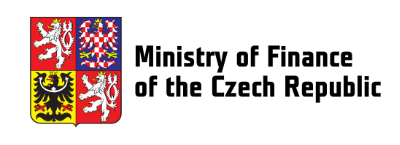ECOFIN: Ministers discuss assistance for Ukraine, strengthening the resilience of the banks and abolishing the minimum road tax
Today, at a meeting of the ECOFIN Council in Brussels chaired by Zbyněk Stanjura, the finance ministers agreed on the need for a rapid continuation of macro-financial assistance to Ukraine in the amount of EUR 18 billion for 2023. The ministers also agreed on a compromise proposal implementing the Basel III international banking standards to increase the resilience of the EU banking sector. They also discussed the abolition of mandatory minimum road tax rates and the impact of the US Inflation Reduction Act legislation on European companies.
The finance ministers discussed the economic and financial aspects of the Russian aggression against Ukraine and the need to ensure the continuation of macro-financial assistance to Ukraine. "My personal visit to Kiev last week was a really powerful experience for me. You arrive in a warring country and you receive a message warning of the risk of bombing in the area you are in. I saw for myself the difference between judging the state of a warring country from the outside and direct personal experience," said Finance Minister Zbyněk Stanjura.
In the spring, EU leaders decided to provide Ukraine with €9 billion in 2022 to run the state and ensure the functioning of critical infrastructure through macro-financial assistance. A total of €6 billion of this package has so far been disbursed to Ukraine, while the remaining €3 billion will be part of a new €18 billion package for 2023, which the Commission is expected to publish on 9 November. "Today I have urged my colleagues in the Commission to speed up the preparation of the necessary legislation so that the new aid package can be approved at the December Ecofin under the Czech Presidency. The first € 3 billion to provide basic public services could reach Ukraine in early January," Stanjura added.
The ministers also discussed the implementation of the Basel III standard, the international rules approved by the Basel Committee on Banking Supervision, into European legislation. The Commission's so-called 2021 banking package aims, in particular, to revise existing capital requirements and thus make banks more resilient in the event of future economic shocks. "We are confident that we have found a good compromise proposal that implements international standards while reflecting the specificities of the EU banking sectors. The key for us was to support the preparedness of European banks for possible future crises by increasing their capital requirements while avoiding disproportionate impacts on the EU banking sector," said Stanjura.
Also on the agenda was a debate on the revision of the directive on the charging of heavy goods vehicles for the use of certain roads (Eurovignette). The amendment to the directive would abolish the obligation to apply the European minimum road tax rate to trucks over 12 tonnes. "I see the modification of the Directive as another step towards greater tax liberalisation. It will allow EU countries to set a zero road tax rate, but it does not prevent anyone from maintaining the taxation of trucks. I am convinced that in the Czech Republic, the abolition of the remainder of road tax would benefit both small and medium-sized enterprises and the state, which is forced to administer this budget-poor tax in a costly manner," Stanjura concluded.
